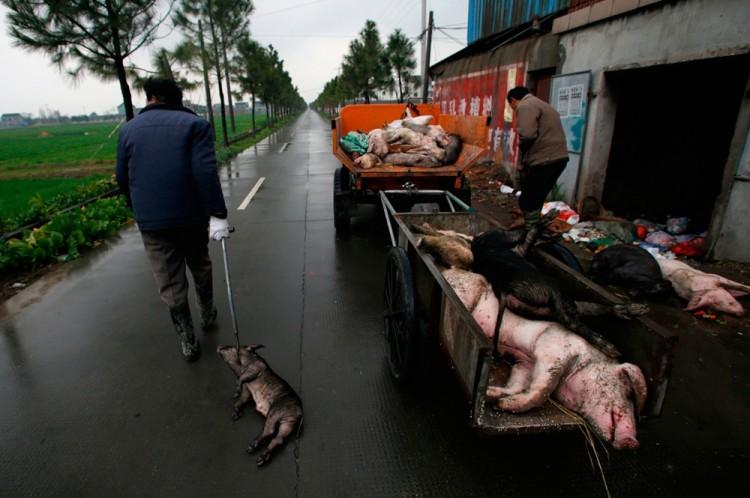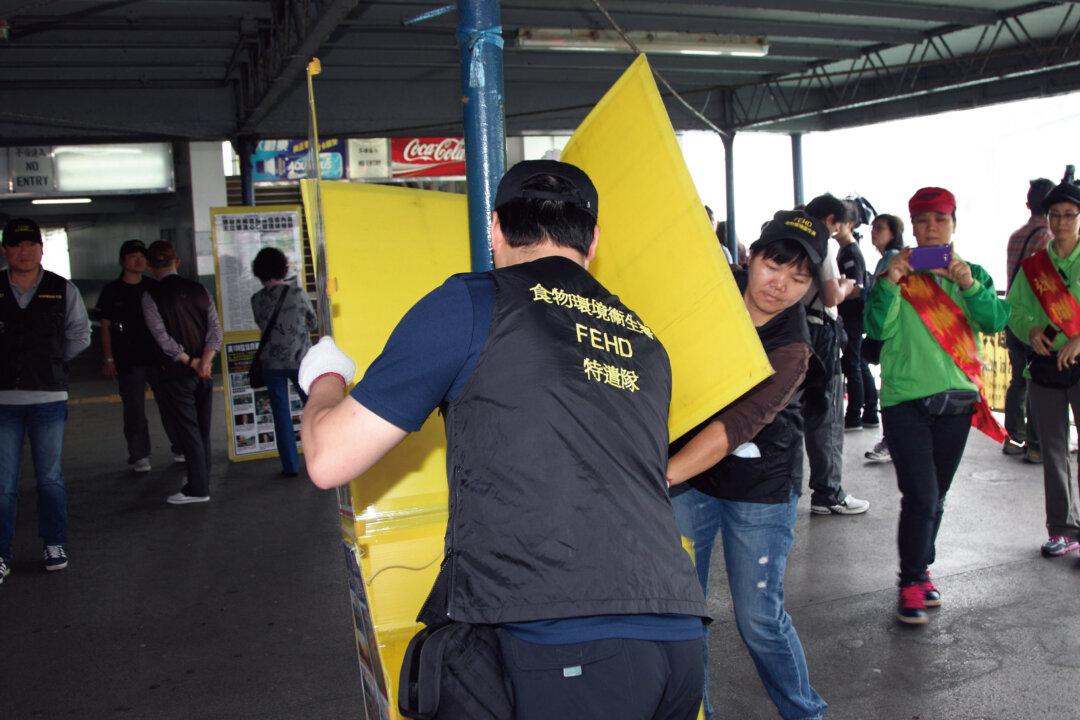Communist officials say that the water in the Huangpu River is drinkable based on only nine out of 136 test indices, even though thousands of dead pigs were dumped in the river.
So far, nearly 13,000 carcasses have been removed from the waterway, which provides drinking water to Shanghai’s 23 million residents.
Last year, the Chinese Public Health Ministry announced 136 indices used to test tap water quality, similar to the testing standard in the European Union, according to Dr. Wang Weiluo, an environmental expert currently living in Germany.
“But Shanghai water authorities only tested nine of the 136 indices,” Wang told the Sound of Hope (SOH) Radio Network. “You cannot state that the water has passed inspection, because most of the parameters were not tested.”
Wang noted that the methodology used by the authorities was questionable. “They neglected to test some of the indices that the water was bound to fail,” he said. “There are also some indices that would not be affected by the dead pigs before they started to rot, including the hardness and clarity of the water.”
Many pig carcasses were found in other rivers across China, including Xianyang City’s Wei River in the northwestern province of Shaanxi, Hesan City’s Kunnan River in the southern province of Guangdong, and Yichang City’s Wulong River in the western province of Hubei.
The Huangpu River hogs have caused deep concern among Shanghai residents and netizens. A Jiaotong University student wrote a blog post asking authorities to publicize the water quality test data. His post was circulated by close to 20,000 netizens in just over 10 hours, Radio Free Asia (RFA) reported.
A netizen named Pan Ting in Shanghai also questioned the water authorities in her microblog, and invited Shanghai residents to join her for a walk on March 23 to “commemorate their mother river.” However, authorities deleted her posts, and blocked her from using her microblog and phone, according to another RFA article.
Overseas dissident and writer Zheng Yi has been following China’s environmental problems for years, and told SOH that the water contamination is a systemic problem inherent to the Chinese regime.
“If no victim is allowed to organize a protest; if there remains no freedom of speech or basic human rights; and if the polluting enterprises and government officials continue to collude; then the widespread discharge of contaminated water will not change,” he said.
“China does not have a single river that is unpolluted. Many rivers are heavily contaminated,” he added. “With thousands of dead pigs floating in the river, of course the water would be polluted. There is no question about this.”
Written in English by Arleen Richards .


